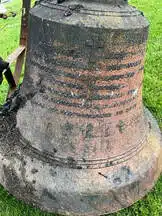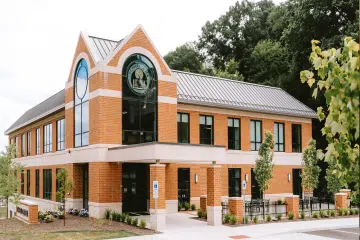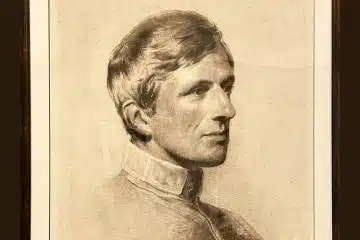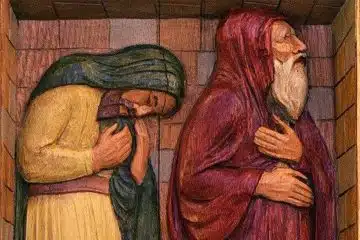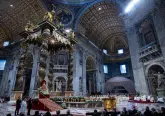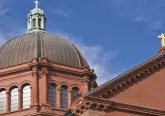Throwback Thursday: Catholics fight for conscience rights in 1853
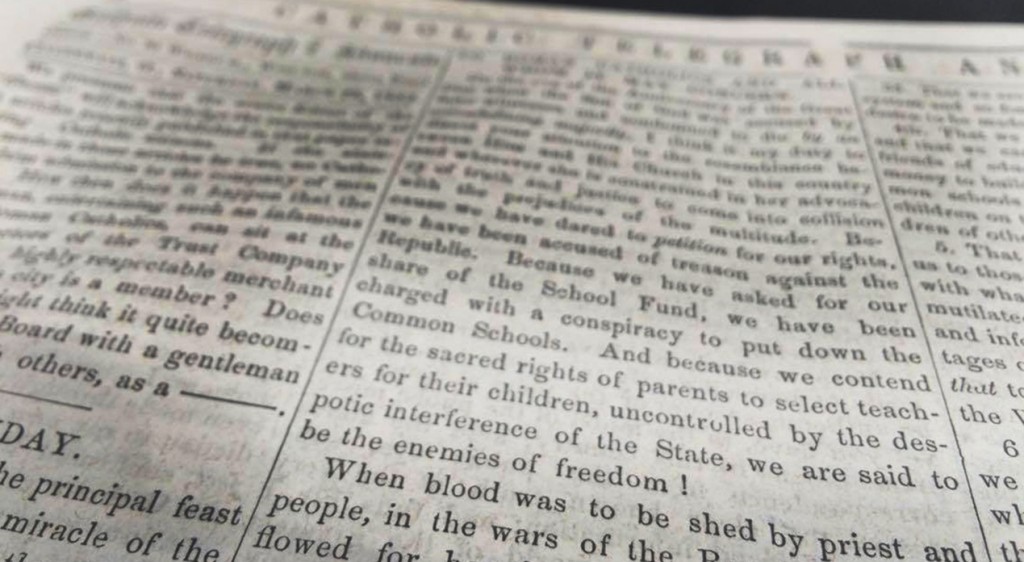
The ongoing legal disputes between the federal government and Little Sisters of the Poor and other Catholic groups opposed to providing contraceptives as part of their health insurance plans isn’t unique in American, or even local history.

According to the book Faith and Action: A History of the Archdiocese of Cincinnati, a similar story played out in 1853. That story makes for this special Fortnight for Freedom edition of Throwback Thursday.
In 1853 a plan was put forward to allow Catholic schools to receive a share of state funds for education. It was, in effect, a predecessor to today’s voucher programs. Cincinnati Archbishop John B. Purcell was a strong advocate, but the idea didn’t take with many non-Catholics.
In the spring of 1853 a bill was put forth in the Ohio legislature that would have forced parents to send their children to public school for at least three months a year, under a penalty of $20 for each offense.
These two ideas came to a head in a spring election in Cincinnati.
At the time, much of the state of Ohio fell under the jurisdiction of the Archdiocese of Cincinnati and its archbishop, The Most Reverend John B. Purcell.
Anti-Catholic sentiment was strong in the area with the rise of the Know-Nothing party and remaining Whig party. The attitudes were so bad that in December of that year, the visit of a Vatican representative to Cincinnati led to a riot with 60 arrested and one person killed.
In March, Archbishop Purcell wrote a letter in The Catholic Telegraph and Advocate that vehemently opposed the law which would force Catholic students to attend public school.
“For ourselves we can only say, as Guardian of some three hundred orphans, that we pray God to permit that our life be trampled out by a mob in the streets of the Queen City before we obey it, if it ever sought to be enforced,” he wrote.
In the same letter Archbishop Purcell addressed both the voucher-style proposal, and the potential new law.
“Because we have asked for our share of the School Fund, we have been charged with a conspiracy to put down the Common (public) Schools,” he wrote. “And because we contend for the sacred rights of parents to select teachers for their children, uncontrolled by the despotic influence of the state, we are said to be enemies of freedom!”
An election in early April saw the defeat of several anti-Catholic candidates for municipal office in Cincinnati, and the state bill was eventually defeated and dropped.
Protestant and secular publications, including the Cincinnati Enquirer, reacted angrily to Archbishop Purcell’s advocacy, claiming he was interfering in politics. The Catholic Telegraph and Advocate, however, took a different take. In an April 9, 1853 editorial the newspaper wrote:
“Now be it known to all to whom these presents shall come, that all the Catholics did was to petition the Legislature to amend the school laws, so that Catholic children could attend the schools without sacrifice of the rights of conscience!!”
Anti-Catholic sentiment in the region didn’t calm down with the defeat of the bill. The aforementioned riots were just one example of hatred experienced by local Catholics. Things were so bad that even Archbishop Purcell did not feel safe.
After the election, Archbishop Purcell sent his will to the Archbishop of Baltimore, Francis Kenrick, with this note.
“Being frequently admonished that I may be put to a violent death, I have thought it my duty to make my will anew,” he wrote. Later he added, “For many years I have never felt secure of my life, in this city, a single night.”
By the grace of God, Archbishop Purcell died at the age of 83 on Independence Day, July 4, 1883.
Today Catholics of the United States continue their observance of the Fortnight For Freedom, a two-week vigil for religious freedom and conscience rights in the United States. In their statement on religious liberty, “Our first, Most Cherished Liberty,” the United States Conference of Catholic Bishops wrote:
“We are Catholics. We are Americans. We are proud to be both, grateful for the gift of faith which is ours as Christian disciples, and grateful for the gift of liberty which is ours as American citizens. To be Catholic and American should mean not having to choose one over the other. Our allegiances are distinct, but they need not be contradictory, and should instead be complementary. That is the teaching of our Catholic faith, which obliges us to work together with fellow citizens for the common good of all who live in this land. That is the vision of our founding and our Constitution, which guarantees citizens of all religious faiths the right to contribute to our common life together.”
The bishops’ statement ends with an invitation to prayer and fasting. A prayer as appropriate now as it would have been in 1853.
“To all our fellow Catholics, we urge an intensification of your prayers and fasting for a new birth of freedom in our beloved country. We invite you to join us in an urgent prayer for religious liberty.
Almighty God, Father of all nations,
For freedom you have set us free in Christ Jesus (Gal 5:1).
We praise and bless you for the gift of religious liberty,
the foundation of human rights, justice, and the common good.
Grant to our leaders the wisdom to protect and promote our liberties;
By your grace may we have the courage to defend them, for ourselves and for all those who live in this blessed land.
We ask this through the intercession of Mary Immaculate, our patroness,
and in the name of your Son, our Lord Jesus Christ, in the unity of the Holy Spirit,
with whom you live and reign, one God, for ever and ever. Amen.”
Welcome to The Catholic Telegraph’s edition of Throwback Thursday. Throwback Thursday is a weekly online feature wherein users of social media share an old photo or anecdote about times gone by. We use Throwback Thursday to highlight the history of the Archdiocese of Cincinnati, and our publication.
Recent Throwback Thursdays
Auxiliary Bishop’s resignation leads to new archbishop
Historic papal election, itty bitty headline
Little Sisters of the Poor home dedicated 40 years ago
Seven men ordained priests in 2009
Consider getting the print edition


